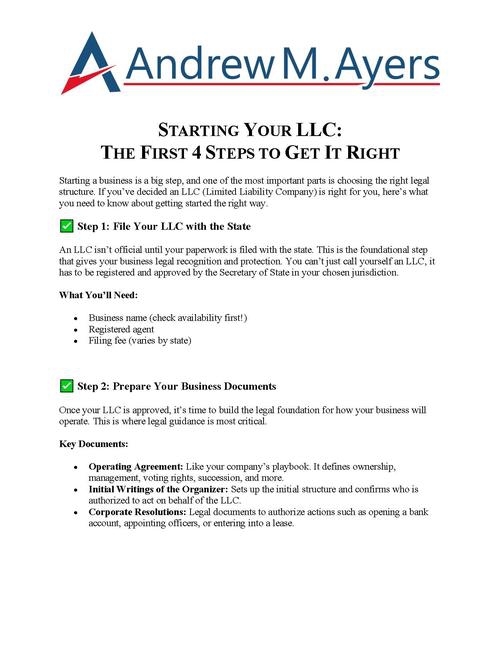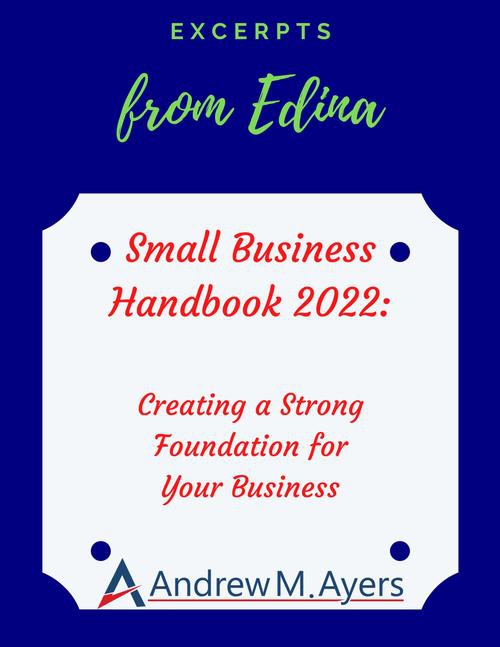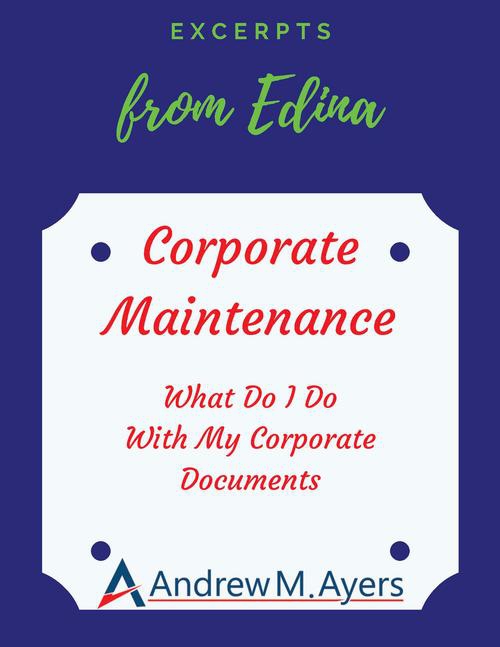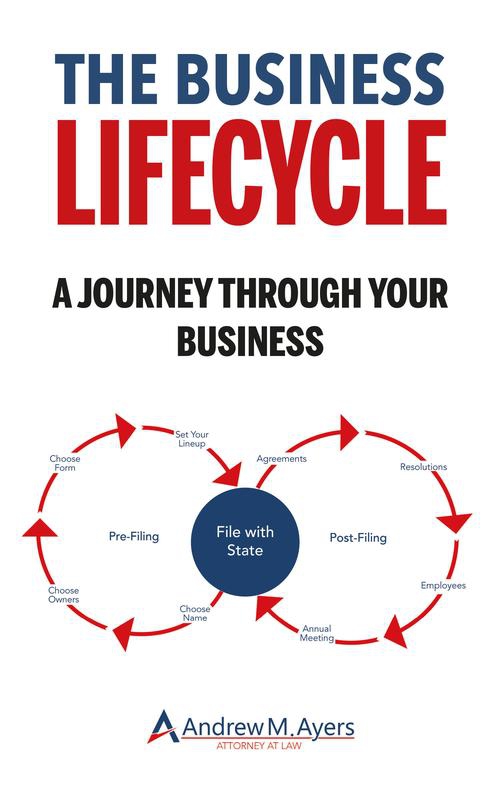How should you maintain your corporate records?
When you first set up your business, you've probably done a bunch of filings with their state and many of these can be done online these days. In the old days, we used to take hard copies down to your Secretary of State, we use different services, but most of these can now be filed online. It makes things a lot faster. But once you've got everything filed, the most important next step you need to take is you need a system for your documents.
For me, I prefer three-ring binders for everything. I use them all over my office to organize,
- Documents that I need for my law practice;
- Newsletters and other reading material;
- Client documents for each different lawsuit.
I even use them at home to keep track of all my kids' activities and try to keep all their schedules straight. And I encourage my clients, especially business clients, to use three-ring binders as well.
If you prefer to use digital organization, you definitely want to make sure that the lawyer you work with has what's called a client portal. In your client portal, you'll have access to PDF versions of all of your documents. You can upload new documents as they come in, and you can send secure messages to your attorney. I know when I added that feature a few years ago to my law firm, it was one of the most well-received things I've done for my clients.
What documents do I have to keep organized?
There's going to be a list of common documents we can look at that you should probably keep organized:
- Articles of Organization ~ These are the documents you filed with the state when you first started your company.
- Professional License Documents ~ You want to keep together any documents that you have to file to show that you're licensed and that you've renewed your license and you're in good standing.
- Bylaws ~ These are drafted when you file your initial business documents, these are rules and guidelines for your company. They don't get filed with your state, but they should be kept with your documents.
- Corporate Minutes ~ When your corporation or your company or your business has a meeting, somebody is supposed to be appointed as the Secretary and keep minutes of the meeting. You'll want to make sure that your corporate minutes are kept together in your corporate binder with the rest of your documents.
- Corporate Resolutions ~ When you are deciding as a company to do something, you're approving new officers and board members, you're setting up a corporate bank account. A lot of times the bank will ask you to either give them a corporate resolution or they'll have a form that they use and they'll ask you and the rest of the owners of the company to sign it and usually have it notarized. If you're buying or selling real estate for your company, if you're approving your initial bylaws and other documents, especially if you're going to merge with another business or enter into a joint venture. They're going to want to see a corporate resolution that the majority of owners of the business at least have decided on this course of action. And if you're taking out a loan, just like opening a bank account, a financial institution will often ask you to provide them with a corporate resolution that authorizes the loan. If you're going to relocate your business to a new address, you want to have a corporate resolution in place in your books. It's one of those things where chances are your state's not going to ask for a copy of it. They're just going to ask you to file the amendment with the state, but you want to have it just in case.
- Corporate Agreements ~ Your operating agreement, your shareholder agreement. If it gets amended or changed over time, you want to make sure the most recent version is in your binder with their corporate documents.
- State Filings ~ Most of them are done by PDF these days. So you don't have to worry about keeping a hard copy because the state has a copy of it in place on PDF on their servers. However, it's a good idea to print out the PDF and keep a copy with the rest of your documents. For example, one document that people commonly have to look for is their EIN (Employer Identification Number) confirmation letter that they get from the IRS. If you're doing those online these days, nothing comes in the mail. There's no hard copy, but it's a good idea to keep that letter handy because oftentimes you have to refer back to it and make sure you've got your EIN number.
- Share Certificates ~ Keep copies as well as a ledger called a "Transfer Ledger" that shows who has the shares when they were distributed.
Why do you need to keep these documents?
The most important reason is:
Your state may require it.
So if the state requires you to keep these documents, have them in a nice organized place. If you're in a lawsuit, you might have to provide proof that you're actually a legitimate company. One easy way to do it, if the other side has raised this defense saying you're not a legitimate company, you could bring in your corporate records, show them your corporate binder.
Banks and lenders may want to see these documents when you're applying for financing, not just the corporate resolution, they may want to see your operating agreement. They may want to see who's got shares, they may want to see your transfer ledger, and most importantly, if you go to sell your company, nobody wants to buy a disorganized company. However, they may want to buy a disorganized company because they can offer you less money for it because it seems like you don't have your stuff together. And they can give you a lowball offer because you're not really on top of things. However, if you enter into some kind of negotiations to sell your company or merge to somebody else, there's nothing more impressive than saying here's the corporate finder, here are all the documents you're looking for laid out perfectly.
Do I Need to File Them With The State?
The last thing that people ask is when we're going through all these different documents, do I need to file these with the state? It depends:
- Your initial filings? Yes.
- Corporate agreements, your minutes, your Annual Meeting Notes? No.
- Licensing documents? Yes.
Next Steps
If this seems a little bit over your head, and you've had a lot of documents floating around and you're not sure what to do, let's set up a Legal Strategy Session and we can go through where you are now and where your documents are. Because the most important thing you need to have is a system and we want to make sure you have a system in place to manage your corporate documents.





